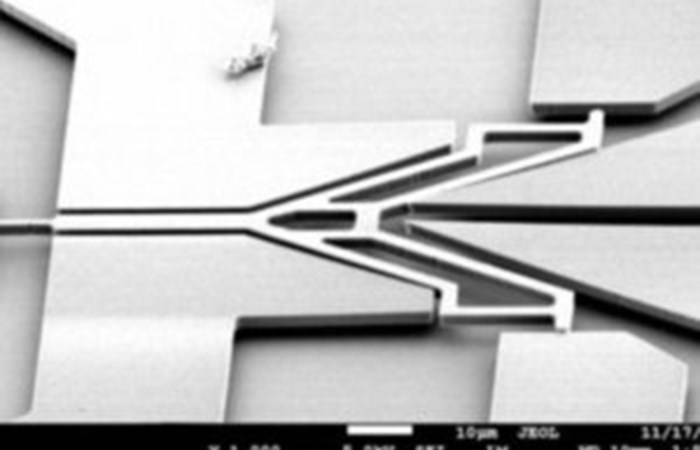Centre for Defence Enterprise

Centre for Defence Enterprise (CDE)-funded research carried out at the University of Bristol has demonstrated more robust and reliable nano-electromechanical relays.
Operation of electronic components in environments with high levels of radiation and high temperatures is very challenging. Nano-electromechanical relays are more radiation resistant and can withstand higher temperatures than existing solid-state technologies, so are the preferred option for these very harsh environments. However, challenges remain around the reliability and functionality of nano-electromechanical relays. The University of Bristols work has developed an electrode contact solution that addresses this challenge.
A reliable nano-electromechanical relay-based technology has massive implications for high-temperature, high-radiation environments; both as a switch and as a long-duration/high-integrity data storage device. It promises capabilities beyond that of existing or experimental capability. This technology would have civilian and defence applications, including electronics for aerospace, unmanned systems, nuclear reactors, oil-field equipment and the automotive sector.
Dinesh Pamunuwa, Reader in Microelectronics, Department of Electrical and Electronic Engineering, University of Bristol says:
The funding and support from CDE has allowed us to carry out fundamental research in engineering that has resulted in a ground-breaking solution to a topical problem.
About CDE
CDE funds novel, high-risk, high-potential-benefit research. We work with the broadest possible range of science and technology providers, including academia and small companies, to develop cost-effective capabilities for UK armed forces and national security.
CDE is part of Dstl.
Centre for Defence Enterprise
Building R103
Fermi Avenue
Harwell Oxford
Oxfordshire
OX11 0QX
Please email for the quickest response.
